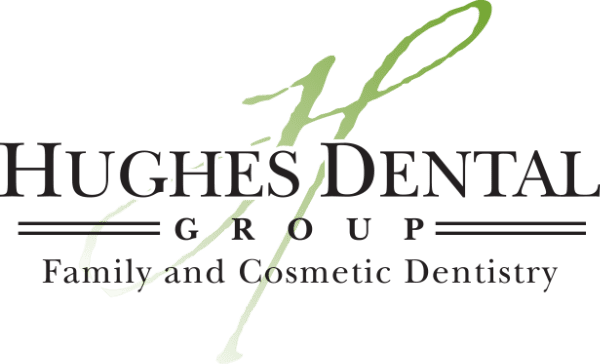Are you considering a removable dental bridge to restore your smile but unsure if it’s the right choice for you? At Hughes Dental Group Family and Cosmetic Dentistry, we understand the importance of weighing the pros and cons, and we’re here to guide you through the benefits of convenience and affordability, as well as the considerations for long-term oral health and maintenance.
Understanding Removable Dental Bridges
Removable dental bridges are a type of dental prosthesis designed to replace missing teeth and restore functionality to your bite. Unlike fixed bridges or implants, these bridges can be taken out for cleaning, making them a convenient option for many patients. They consist of artificial teeth attached to a plastic base, which is sometimes connected by a metal framework that holds the bridge in place within the mouth. It’s important to consider not only the immediate aesthetic and functional benefits but also the long-term impact on oral health. For instance, without proper care, a dental bridge can lead to bone loss in the jaw over time.
To maintain the health of your jawbone and ensure the longevity of your dental bridge, it’s crucial to follow a rigorous oral hygiene routine and consult with your dentist for personalized care strategies. For more detailed information on preserving your oral health with a dental bridge, you can explore Effective Strategies to Combat Dental Bridge Bone Loss. This resource provides valuable insights into preventing bone deterioration, which is essential for keeping your smile intact and avoiding further dental complications.
Pros of Choosing Removable Bridges
Removable dental bridges offer a myriad of advantages for those seeking a balance between cost-effectiveness and functionality. One of the most significant pros is their affordability compared to permanent bridges or implants. They require less invasive procedures, which not only reduces the overall treatment cost but also minimizes the recovery time for patients. Additionally, removable bridges are highly convenient for cleaning and maintenance. Unlike fixed bridges, they can be taken out to ensure thorough cleaning, which helps maintain oral hygiene and prevent gum disease. For individuals who are not candidates for dental implants due to health reasons or bone loss, removable bridges provide a viable and less complex alternative.
Another advantage is the adaptability of removable bridges. They can be easily adjusted or replaced if changes in the mouth occur, such as shifting teeth or alterations in bite. This flexibility is particularly beneficial for patients who are experiencing ongoing dental changes or those who are not ready to commit to a permanent restorative solution. Moreover, the installation process is generally quicker and less discomforting, making it an excellent option for patients who are apprehensive about dental procedures. For personalized advice and expert fitting, consider consulting with Dental Bridge Experts in Leo, who can guide you through the process and help determine if removable dental bridges are the right choice for your specific needs.
Potential Drawbacks and Limitations
While removable dental bridges offer a viable solution for missing teeth, it’s important to consider their potential drawbacks and limitations before making a decision. One significant limitation is that they may not provide the same level of stability as fixed bridges or dental implants, potentially leading to discomfort or difficulty while eating and speaking. Additionally, removable bridges require meticulous daily maintenance to prevent gum disease and decay in the supporting teeth. They also need to be removed nightly for cleaning, which can be inconvenient for some individuals. Over time, the fit of a removable bridge may change due to natural alterations in your mouth, necessitating adjustments or replacements. Understanding these challenges is crucial in determining whether removable dental bridges align with your lifestyle and dental health needs.
Maintenance and Care Considerations
When contemplating the suitability of removable dental bridges, it’s crucial to weigh the maintenance and care they require. Unlike fixed bridges or implants, removable bridges demand a diligent oral hygiene routine to prevent plaque buildup and gum disease. You’ll need to clean your bridge daily using special brushes or floss designed for dental appliances, as well as soak it in a cleansing solution to maintain its integrity and prevent odors. Additionally, regular dental check-ups are essential to ensure the bridge fits correctly over time, as poor fitting can lead to discomfort and oral health issues. While this added responsibility might seem daunting, many find the ability to thoroughly clean their appliance outside of the mouth a compelling advantage for their overall oral health.
Comparing Alternatives: Fixed vs. Removable
When considering dental bridges, it’s essential to weigh the differences between fixed and removable options. Fixed bridges are permanently attached to adjacent teeth or implants, offering a stable and long-lasting solution that closely mimics natural teeth. On the other hand, removable bridges, or partial dentures, can be taken out for cleaning, potentially improving oral hygiene. However, they may not provide the same level of comfort or confidence as fixed bridges due to the possibility of movement while eating or speaking. Your choice should align with your lifestyle, dental health needs, and budget, as costs can vary significantly between the two. Consulting with your dentist will help you understand which type of bridge is more suitable for your specific situation, ensuring you make an informed decision for your oral health.
Conclusion
For personalized advice on maintaining your dental bridge and preventing bone loss, call Hughes Dental Group Family and Cosmetic Dentistry at 260-627-5345 or read our reviews on Google Maps.
